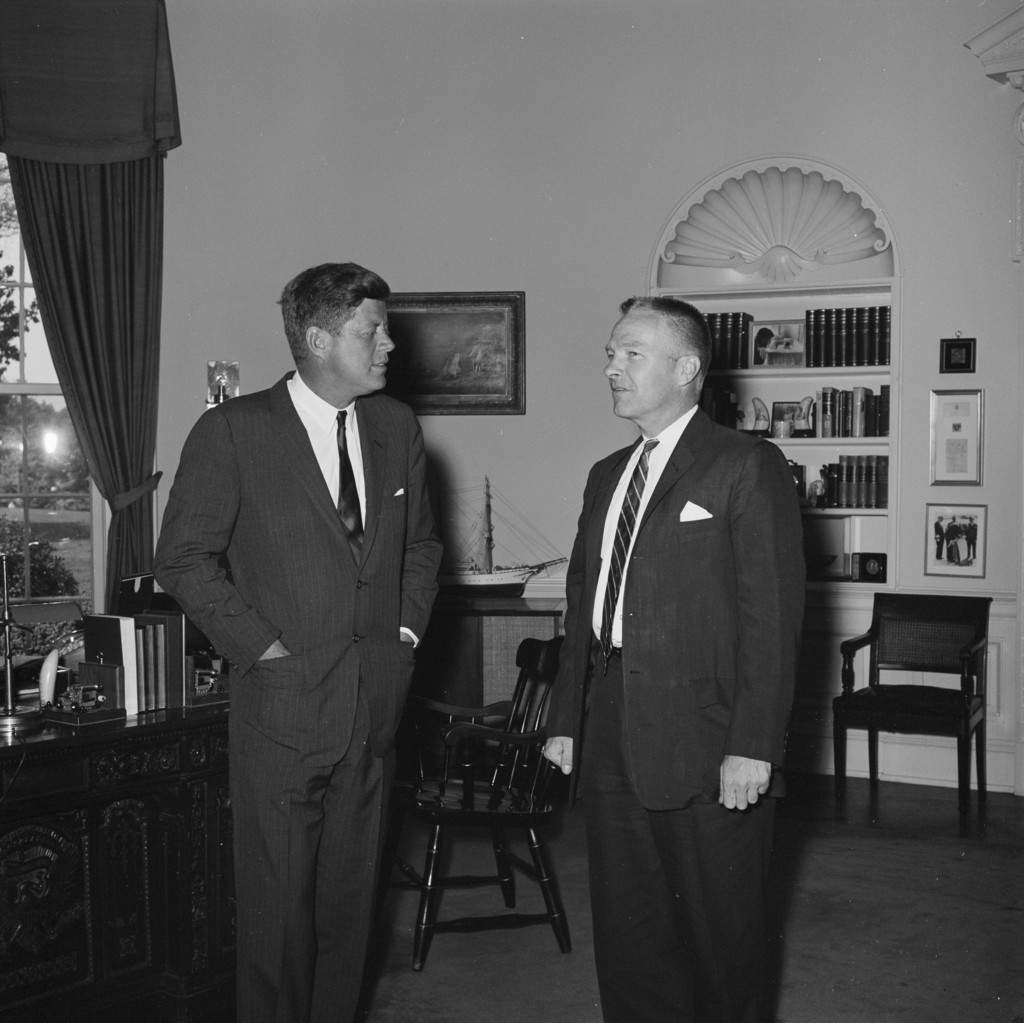Cuban Missile Crisis
How Debate and Diplomacy Stopped a War
Debates with JFK
On October 16th, 1962, Kennedy's advisors met with him to brief him about the pictures the C.I.A. had analyzed the day before. They briefed him on the newly found missile sites in Cuba and the Soviet influence behind them. He was faced with many options as to how to handle the situation. While an overthrow of Castro's government was avaliable, there was too much risk with the Soviets involved. He had to maintain the United States' alliance with N.A.T.O. as well as be watchful of Berlin in the threat of war. If the U.S. blockaded Cuba, the Soviets might blockade West Berlin and war would be inevitable.

President John F. Kennedy with White House Staffer, 1961, Picryl.com
Faced with a tough decision, Kennedy went into a series of meetings with advisors, the C.I.A., the Joint Chiefs of Staff, and other members of his administration. Joint Chiefs of Staff Chairman General Maxwell Taylor said that Kennedy should consider "why the Russians did this," and that "If we allow their missiles to remain, we have offended our prestige, and are in a position to pressure us. On the other hand, if we attack the missiles or invade Cuba, it gives them a clear line to take Berlin."(TIME: Inside JFK's Decisionmaking during the Cuban Missile Crisis) Chief of Staff of the Air Force. Curtis LeMay said otherwise. When asked by J.F.K. (John Fitzgerald Kennedy) what to do if the Soviets react to an attack on Cuba, LeMay said that "...if they make a move, we're going to fight." (TIME: Inside JFK's Decisionmaking during the Cuban Missile Crisis) His advisors were split between two decisions and it is remarkable the effort put into stopping war between the U.S.S.R. and the U.S.
Next